Coping | Daily Life | IBD | Ostomy
Whether it is my general practitioner, gastroenterologist, or even a nurse at the local urgent care, I always dread one question:
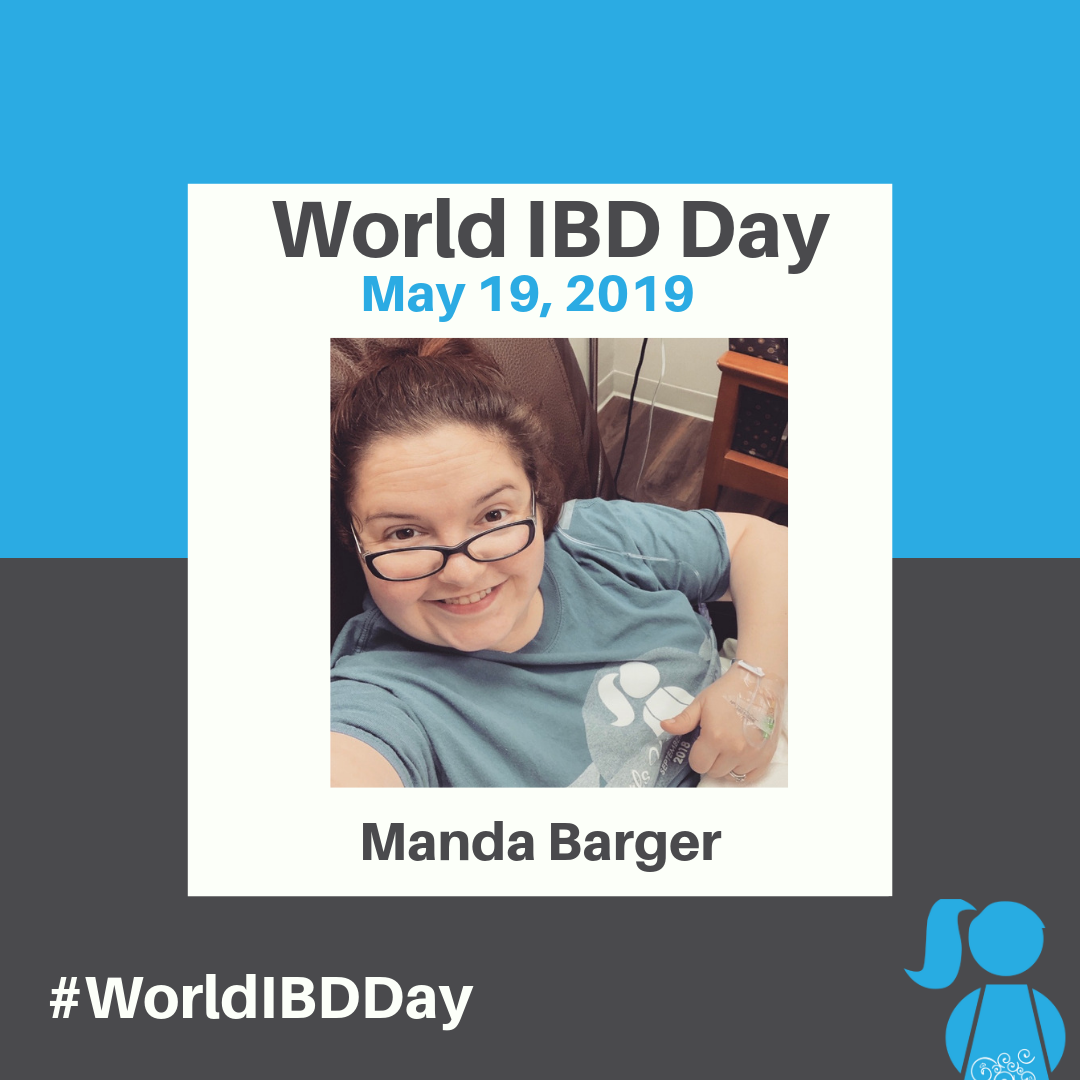
“What is your family history?”
Throughout my adult life, I’ve given lists, stories, even jokes, but it all comes down to this: my colon was destined for disaster.
Let’s rewind a bit, like a few decades.
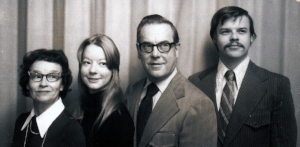
Back in 1970, my father was on the cusp of adulthood. Twenty years old and going to college, he had a bright future ahead of him. It was about that time that he realized something was wrong. He went to the local family doctor after seeing blood during his visits to the bathroom. Around that time his younger sister also had blood and severe abdominal pain. Both were eventually referred to the University of Chicago Medical Center and diagnosed with ulcerative colitis.
It is fascinating to hear their stories about modern medicine at that time. They arrived at UChicago in the beginning of the era of Dr. Joseph Kirsner, who is considered the pioneer of gastroenterology.
A routine doctor’s appointment included a proctoscopy, blood tests, and evaluation. Both remember their fair share of discomfort. My father remembers undergoing test where he drank barium and was filled with air, along with the pain of passing it afterwards. My aunt remembers a time her flare was so bad, blood “gushed out” during a proctoscopy. They both remember being among the first patients to get a colonoscopy- which did not include sedation at that time.
For years my father and his little sister suffered through cycles of flares and remission. They underwent different diets (including a stint of just watermelon and lemon), enemas, and medications. While being treated at UChicago, they were even featured in an article about research into colitis.
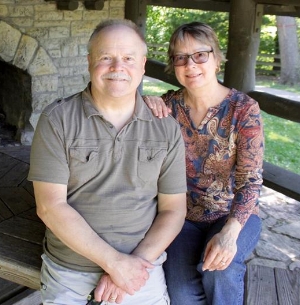
Siblings Bill and Mary Jo in 2017
This also meant they were the focus of research. After my Dad had a bad reaction to one (of many) blood transfusions, researchers were determined to find out why. He remembers a lab technician even stopping him in a hall to take a blood test.
The siblings were often admitted and had countless blood transfusions. They lost years of their youth and energy. Dad once weighted 117 pounds and the disease nearly took my Aunt’s life when medical staff were unable to get a good stick for a transfusion. Once a nurse was finally able to get a vein, she immediately needed 5 units of blood.
Yet they survived. They persevered. Despite spending most of her senior year in Chicago, Aunt Jo graduated high school. Dad returned to school and achieved his associates degree. They had relationships and got married. My mother still remembers traveling to Chicago with Dad.
After ten years of flares and remission, doctors at UChicago removed Dad’s colon. It didn’t bring instant relief. He would end up having two more surgeries relating to the disease. My aunt’s surgery to remove her colon soon followed. By the mid 1980s, both finally began living a life colitis-free. It quickly became the norm. Since I was born later, I grew up use to seeing the ostomy bags and supplies.
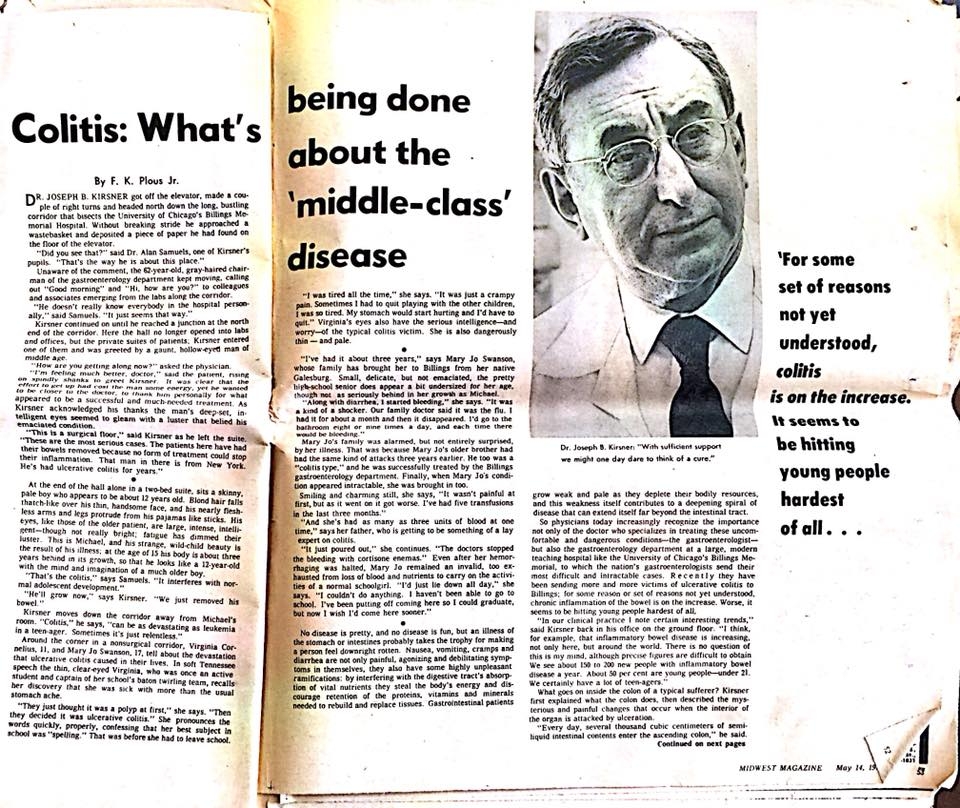
But the story doesn’t end there. Later on, my mother noticed pain and blood.
By that time it was the 1997, a time where she faced new challenges: a new job while caring for her ailing father and me as a preteen. Not to mention, she was learning how to handle all of this as a single mom.
It was also a different time for medical care. Our family doctor was able refer Mom to a gastroentererologist near our home. Routine appointments had changed to what many of us know today. She brought family records, discussed her symptoms, and scheduled a colonoscopy. Patients were sedated during colonoscopies but instead had to handle large amounts of bitter-tasting medication to prepare.
Mom was diagnosed with Crohn’s disease, but it was contained in her colon. She then began the journey to reach remission. Again, all while handling life’s new challenges. She quickly learned that stress could cause flares.
She also learned how complicated IBD could be. The first time she was given a steroid, it immediately induced diabetes, another autoimmune disease with complications. As she started taking 5-ASAs (mesalazine/mesalamine), she would find certain brands worked better than others. By this point, 5-ASAs were frequently used and she tried about each one (Asacol, Lialda, Delzicol, Apriso, etc.)
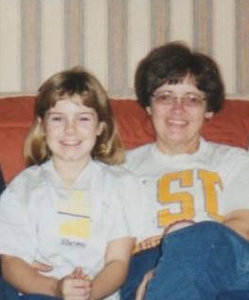
Mom and me in the 1990s
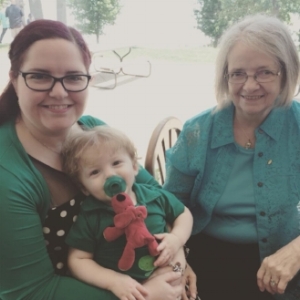
Mom, my son, and myself in 2018
I’m happy to say twenty years later, she been able to maintain her IBD well enough to only need 5-ASAs. Instead, she’s in the world of battling health insurance. Her insurer occasionally changes her 5-ASA brand and it once induced flare.
That brings us to 2013. At the age of 25, I began having urgent trips to the bathroom and eventually noticed blood. While it wasn’t my first colonoscopy, this was the first to show mild inflammation. With my family history, my local gastroentologist was unsure which to diagnose. While calling it ulcerative colitis for years, my doctor at Vanderbilt University Medical Center changed my diagnosis to Crohn’s disease.
We have actually been able to trace both branches of IBD even further now. Mom’s father was diagnosed with Crohn’s disease in the late 1960s. A part of his colon was removed and he lived the rest of his life on a low-dose steroid. We also suspect my Dad’s grandmother had IBD since it is family lore that her colon had to be removed.
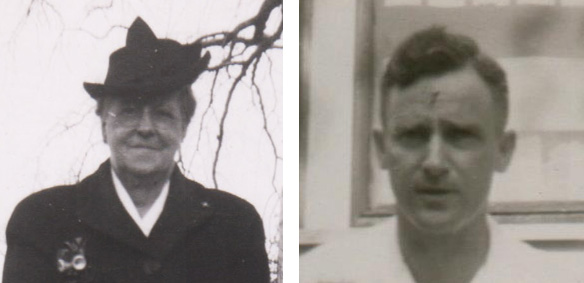
My Great Grandmother Edith and My Grandfather Millard
I joke my colon was destined for disaster, but I actually feel blessed to have a great support system. While Vanderbilt is 2.5 hours away, I have never had to go alone. When my husband can’t make it, each of my parents have taken the time to travel with me. The rides often include sharing stories and reflecting on how IBD and treatment has changed in the past 50 years.
I often find myself thankful.
